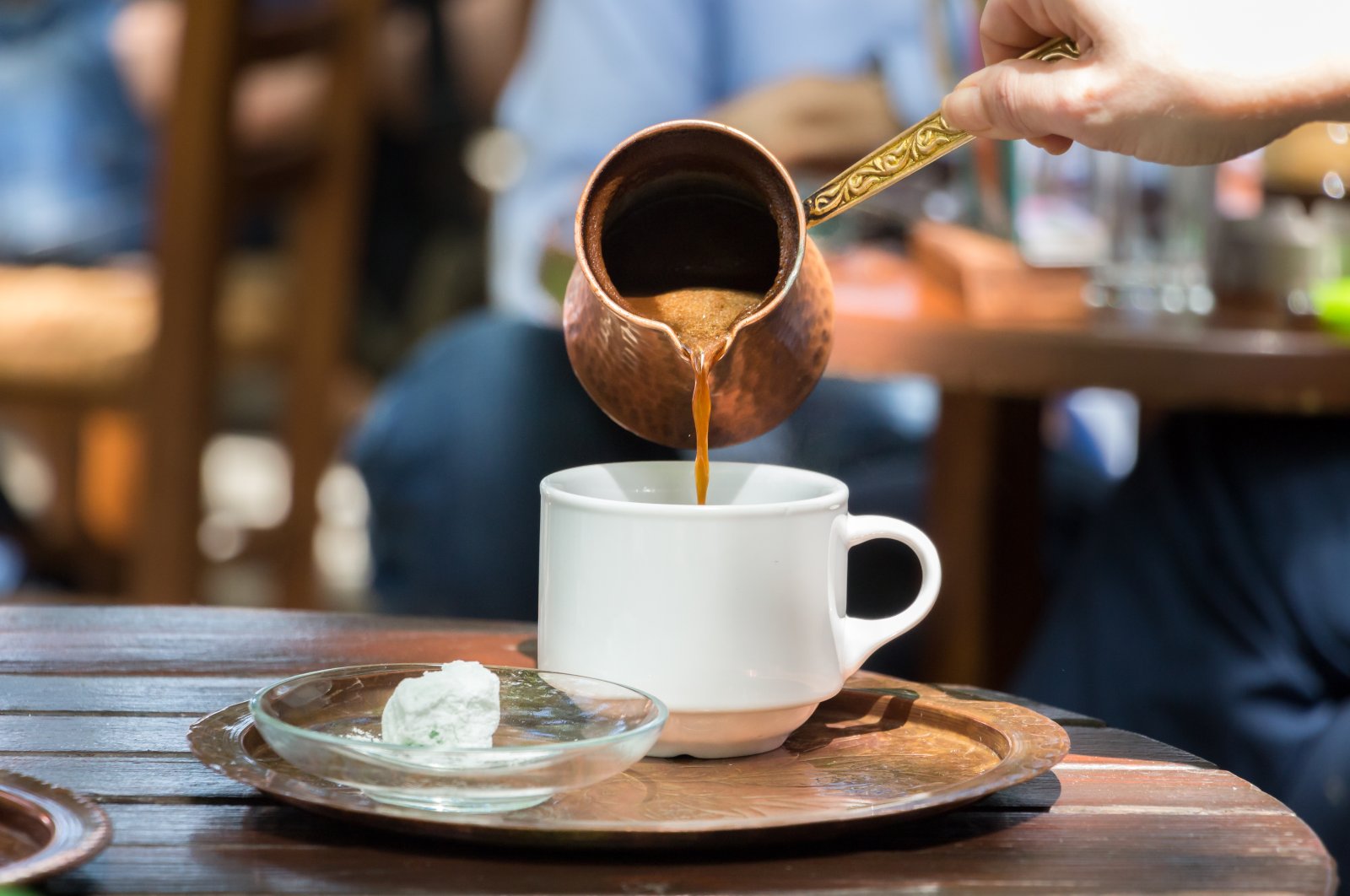Turkish coffee reflects a certain type of culture and lifestyle in Türkiye and has been celebrated each Dec. 5 after its fame was widely acknowledged with its addition to UNESCO’s list of Intangible Cultural Heritage of Humanity
Turkish coffee is an inseparable part of an energetic day for most people. It is a culturally rooted beverage that has been passed down from generation to generation, making it a traditional element of society.
World Turkish Coffee Day comes every year on Dec. 5. The date also marks the day of its addition to UNESCO’s list of Intangible Cultural Heritage of Humanity in honor of the beverage that first reached Anatolia centuries ago during the reign of the Ottoman era. It was Ozdemir Pasha, the Ottoman governor of Yemen, who presented the sultan with his first taste of the brew in 1543.
Striking with its unique flavor and brewing process, it spread from the imperial court and reached Europe in the 17th century when Ottoman soldiers unintentionally left some coffee beans outside the gates of Vienna.
After the Austrians found and brewed them in their style, Turkish coffee soon became widely popular in Western Europe, brewed from very finely ground Arabica beans.
The coffee is prepared in a “cezve,” a long-handled pot typically made of copper or brass, and served in a “final,” small special cups. It almost always comes with a glass of water and “lokum,” sweets that most of the world knows as Turkish delight.
After the cup is empty, coffee drinkers often flip them over on the saucer to interpret the shapes that the grounds make as they trickle down the side of the cup, believing that it may show their fortune.
Turkish coffee is a symbol of history and hospitality, its essence best captured in a famous Turkish saying: “The memory of a cup of coffee lasts 40 years.”
What is truly remarkable is how the roasting, fine grinding, painstaking preparation and service remain a tradition practiced in very much the same style as it was conceived, and consuming this type of coffee continues to be a daily practice for most people who are in Türkiye.
That said, there are also several variations for the brew, sometimes with spices added. Likewise, the way to serve traditional Turkish coffee has developed over time in varying regions, such as sütlü Türk Kahvesi, which translates into “coffee with milk,” or brews with mastic aroma as well as “dibek kahvesi,” a unique combination of spices with Turkish coffee that are ground together.
As its taste is legendary, Georgia’s ambassador to Türkiye expressed his fondness for Turkish coffee’s unique taste.
“There are many coffee-producing countries in the world, but making coffee in Türkiye is something else,” George Janjgava told Anadolu Agency (AA).
Describing Turkish coffee as one of a kind, Janjgava said it has an important place in his life.
“You know, there is a saying in Türkiye: ‘The memory of a cup of coffee lasts 40 years.’ Yes, this is true,” he added.
A Turkish employee at the embassy always makes his special Turkish coffee, and Janjgava said he enjoys two cups every day.
Janjgava said Turkish coffee is also consumed in Georgia, adding the history of the Turkish coffee-drinking habit in his country goes a long way back.
Source : Daily Sabah















